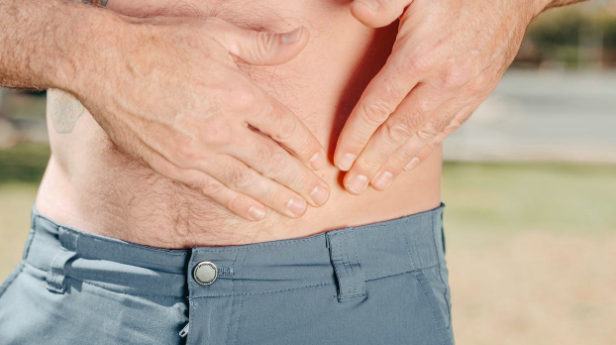Irritable bowel syndrome, or IBS for short, is not one of the most widely discussed conditions. There is some stigma around it due to the nature of the condition, but over one in ten people experience IBS and it affects women at a rate of 2-to-1 when compared to men.
IBS can affect your comfort, diet, and lifestyle, so it’s important to understand it and know how to manage it.

How do you know if you have it?
IBS is a syndrome rather than a specific condition, meaning that it can have a range of causes, as well as a range of symptoms, from the discomforting to the increasingly painful. As such, get the opinion of a doctor if you want to have it formally diagnosed and treated.
Signs that you might have IBS can include:
- abdominal cramps that tend to go away after you use the toilet,
- bloating (especially after eating),
- frequent constipation or diarrhea,
- a positive result from a newer lab, IBBSure, which can be ordered with Kel’s Wheat Zoomer Test.
Everyone can experience these symptoms from time to time, but if they’re becoming a much more frequent part of your life, then it’s a good sign that you might have IBS.
Living with incontinence
As mentioned, the symptoms associated with IBS can differ from person to person, but one of the more common issues is incontinence. Some people can find this problem embarrassing to talk about, but it’s important to know that there are options out there to help you manage it.
- Understanding the root cause as it relates to food sensitivities is an important step to take. Kel’s MRT 170 lab is a golden standard when it comes to investing in food sensitivity tests.
- One acute form of dealing with it is by using aids such as incontinence pads which can help you manage its impacts as discretely as you can.
- If your incontinence is caused by any weakness in your pelvic floor muscles, then there are pelvic floor muscles that can help you treat it. This is often a case in post-pregnancy-induced IBS, for instance.
Getting it treated
As mentioned, IBS is a term that covers a range of recurrent or chronic symptoms, it’s not just a single disease. As such, it does not have a specific cure that will affect and help everyone in the same way. Work with a doctor that specializes in treating IBS to make sure that you’re able to access the range of treatments, get insurance coverage when needed and find those that best suit your needs.
This might mean using supplements and anti-diarrheal tablets to treat the symptoms, and getting certain labs done or PT for pelvic floor correction.
Managing your diet in response
The biggest lifestyle factor that will affect the prevalence and severity of your symptoms is what you eat. When it comes to IBS, you mainly want to ensure that you avoid your trigger foods. Trigger foods can be slightly different from person to person, but there are some very common triggers. White bread, pasta, crackers, fried foods, white rice, full-fat dairy products, red meat, chocolate, and baked goods are very common causes of flare-ups. Alcohol, especially beer, can be bad for your gut health, as well. Keep a note of all of the foods you eat and pay attention to when you experience flare-ups of your symptoms so you know what to avoid in the future.
If you’d like to invest in functional labs such as Kel’s MRT 170 Food & Chemical Sensitivity Test or her IBSSure to understand the root cause of IBS/SIBO, contact her today.
Improving it with diet
When thinking about food and IBS, it’s important to think not just about what you can and can eat, but what you can eat to manage your symptoms, as well.
This can differ depending on whether you experience constipation or diarrhea as your main symptom but working with a dietitian can help you identify the foods that will best improve your gut health while avoiding any of your trigger foods.
The key to your diet is often preventing flare-ups of IBS, but you can also improve your digestive system’s functions with things like smoothies, scrambles, soups, cooked vegetables, poultry, fish, and gluten-free grains can help you make your bowel movements more regular.
Targeted supplements such as digestive enzymes at each meal, and a spore-based probiotic like Probiospore or Megaspore probiotic are options, and/or prokinetics to improve gut motility can be considered.
The trigger foods and symptoms of IBS can vary widely from person to person, however, so working with a dietitian is an important step.
Managing your stress
There are more links between the gut and the brain than you might think. Stress can worsen problems with your gut, due in part to the ways that your muscles tense as a response to the release of cortisol, the stress hormone. Treating your stress is as important as treating the physical symptoms of IBS, especially since it’s likely to be a lifelong relationship between the two.
IBS is best treated with the help of doctors that specialize in it, as well as a dietitian. If you want to start living well with your condition, you should seek that help out, first.


